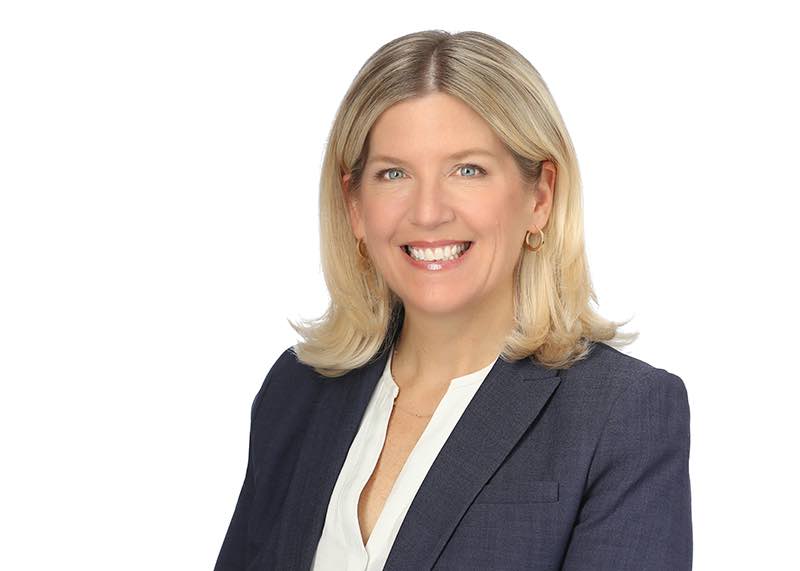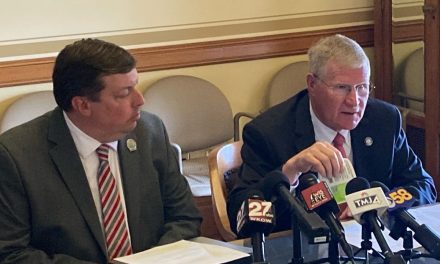
Two years into partnership, Medica, Dean explore growth

Last fall, Lisa Erickson took the reins at Medica, becoming CEO of the Minnetonka, Minn.-based insurer that operates in a dozen states, including as Dean Health Plan and Prevea360 Health Plan in Wisconsin.
Medica finalized a strategic relationship with SSM Health, the owner of Dean Health Plan, in late 2021, with a focus on operations, technology and value-based care.
Erickson joined Medica as chief financial officer last spring. She previously worked at Optum and has also held financial leadership roles at Best Buy, General Mills, The Pillsbury Company and TCF Bank.
Working outside healthcare has given her an “understanding of where some of our clients and customers are coming from,” she said.
While healthcare is complicated and personal, many of its core business challenges are similar to those in other industries.
“Some of the solutions are transferable,” she told Wisconsin Health News. “I think that different perspective can be helpful.”
Erickson said they’re looking to expand in both Wisconsin and Illinois, where they have a partnership with OSF HealthCare.
Edited excerpts from the interview are below.
WHN: Medica and Dean Health Plan’s collaboration is about two years old. How is it going?
Erickson: The joint venture is going really well. The teams have come together seamlessly and very effectively. We have some great leaders, both from our Minnetonka business and from our Madison business … Being able to look across the organizations and leverage the talent that’s there has been good.
From a business standpoint, (the joint venture has been) really positive. One of the things that Medica has traditionally relied on is very strong provider partnerships. In our traditional Medica business, we have great relationships with our integrated health systems and our (accountable care organizations). With our Dean and SSM Health relationship, we have that in Wisconsin as well. There’s actually a few of them. Prevea Health is another example.
Being able to build on that connection with our provider partners — especially in an organization where it’s a joint venture and we really have aligned objectives and incentives — is fantastic.
WHN: What has this partnership allowed you to do?
Erickson: Our biggest investments are around the platform and the technology. (At the start of the year, we brought) the first group of Dean members onto our platform. And then we have several releases after that throughout 2024, where we’ll continue to bring over additional pieces of the Dean business. Bringing them onto a modernized platform that gives us more flexibility and tools is the biggest tangible investment.
From the partnership standpoint, I’m a big believer that how we go to market as a not-for-profit, mission-oriented company can be really unique and different. We can bring a different proposition to our members and to our clients. Dean and SSM are doing that already today. So we’re taking that relationship and looking at some of the other relationships that Medica has and learning from them, like Medica has a great relationship with (Minnesota-based Essentia Health), one of our really strong partners. How do we look at both the Essentia relationship and the SSM relationship, take the best of both of them and get to a place where we really have measurable outcomes that are better for members? That’s ultimately the goal.
We think by coming together, working together and having aligned incentives — and some of our system alignment and aligned goals — we can actually deliver better outcomes for our patients and our members at a lower cost. So that’s what we’re looking to measure and be able to bring proof points to market.
WHN: What are your expansion plans in Wisconsin?
Erickson: We absolutely see Wisconsin as an opportunity for growth. I think we would say the Madison area, western Wisconsin and the Green Bay area and down.
The place that I think is the most challenging is the Milwaukee area, so that’s probably not our first priority. But we absolutely see growth opportunities throughout the rest of the state.
WHN: Has Medica pursued any staff consolidations as the joint venture has taken shape?
Erickson: It’s been very minimal, if any. There has been some work within each of the teams to integrate, but there hasn’t been anything where we did layoffs.
As we’re looking at it now and going into the future, I would say the market is incredibly competitive and challenging. We’re having to look across our entire business and say, ‘How do we make sure that what we’re bringing to market is affordable for our members and for our clients?’ That’s part of our mission, to bring affordable healthcare to markets. We also know we have to compete with our for-profit competitors. So we are looking at everything. We’re looking at affordability. What opportunities do we have to drive affordability and reduce overall medical costs? We’re also looking at our administrative costs, and whether we believe those are competitive in the market.
So while we haven’t done that in the past, we will be looking at what our administrative cost burden is and where we think we need to be.
WHN: What are the main challenges facing the insurance industry?
Erickson: One is that the health systems are challenged with higher costs, increasing costs and costs related to labor. That impacts the health insurance industry as well. Our costs are rising. Members’ costs are rising, and we’re in a really competitive market … There’s a squeeze. I think it’s a tough underwriting cycle for the market.
We’re looking at opportunities to do things differently that will help manage the costs, but do that in a very thoughtful, targeted way, given that our provider relationships are important.
So there are places where we can make changes that I think will drive lower medical costs, whether that’s utilization management or how we think about our formularies, and that will work for clients and help us manage costs for them, but don’t drive undue friction into the relationship. We’re looking to find that balance.
WHN: What’s your vision for Medica?
Erickson: We’re doing a lot of work around that right now, actually. We spent some time over the summer on our long-term strategic plan. We identified what our strategic priorities are for the next three to five years, and then we’re also going deep in that idea of the value proposition.
To me, the vision is that Medica can bring something really unique and different to our members in the market. We can do that by building on those provider relationships that we have — we have incredibly strong provider relationships — our not-for-profit status, being a mission-driven organization and our community engagement. All of those things are key strengths.
And then the last one is the people and the culture. There is a commitment to one another and a commitment to the communities we serve that is really different at Medica than other places I’ve been. So taking those things that I think are our strengths and really going deep. How do we create a value proposition that helps members navigate the healthcare system in a different way, brings value to members into clients and allows us to really bring a differentiated health outcome?
That feels super aspirational. I get that. But I think that there are opportunities for us to do that because of the partnerships that we have.
This article first appeared in the Wisconsin Health News daily email newsletter. Sign up for your free trial here.





